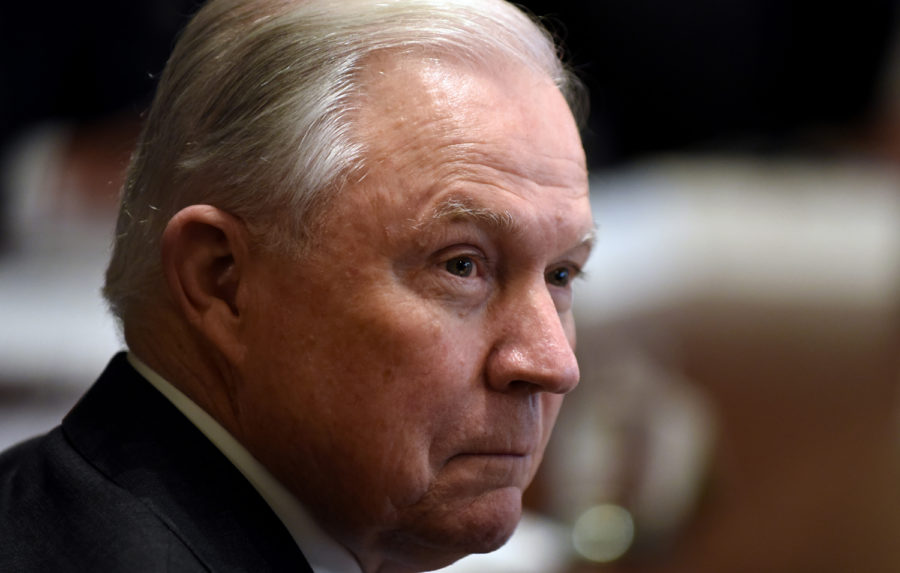Editorial: Sessions’ resignation could curb Russia investigation
Olivier Douliery/Abaca Press/TNS
Attorney General Jeff Sessions looks on during a cabinet meeting in the Cabinet Room at the White House on Oct. 17.
November 8, 2018
The country came out of midterm elections with a new Congress, and President Donald Trump also seems to have walked away a changed person — more defensive and aggressive than we’ve seen him lately.
The day after elections, the president gave an unusually long and combative news conference and then ousted his first and most ardent congressional supporter when he requested that Attorney General Jeff Sessions resign. The day’s events showed a president who feels trapped by an FBI investigation that is slowly drawing to a close and a Democratic majority in the House of Representatives.
During the news conference, Trump got aggressive with reporters, calling CNN’s Jim Acosta “a rude, terrible person,” and telling a female reporter to “sit down.” More significant, however, was the way he threatened a “warlike posture” against the Democratic House majority if it uses its newly won power to investigate corruption within his administration and his personal finances, which Democratic leaders have already said they would pursue.
“I could fire everybody right now, but I don’t want to stop it [the Russia investigation] because politically, I don’t like stopping it,” the president said. “It’s a disgrace. It should never have been started, because there is no crime.”
Evidently, the possibility of further investigations has Trump worried.
He responded to this newfound instability in the way he knows best — by creating more chaos. After the news conference he requested the resignation of Sessions, who complied. The actual resignation isn’t shocking. Since Sessions recused himself from overseeing the investigation into possible collusion between the Trump 2016 presidential campaign — which Sessions was a part of — and Russia, many speculated his time with the Department of Justice would be short-lived.
The problem that arises from Sessions’ exit is about who would have control over Special Counsel Robert Mueller’s investigation. Sessions’ chief of staff, Matthew Whitaker, will be stepping into the position of attorney general until Trump finds a replacement. Whitaker has been vocally against the probe. In a 2017 op-ed written before he worked for the government, Whitaker demanded that Deputy Attorney General Rod Rosenstein curb the investigation.
“Mueller has come up to a red line in the Russia 2016 election-meddling investigation that he is dangerously close to crossing,” he wrote.
Now, Whitaker is temporarily in charge of the Justice Department and has control over Rosenstein — he could rein in the investigation if he or the president want.
Trump may be nervous about the possibility of more investigations, but he seems to have a plan. And it would be a major defeat of our justice system and our democracy if the investigation was allowed to just peter out without any conclusions made or repercussions faced, as he seems to intend. There’s no justice in a Justice Department that doesn’t go after the truth.








